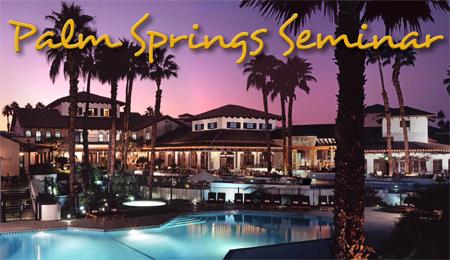Another Successful Palm Springs Seminar
April 14, 2014
From April 4 through April 6, 2014, over 200 attorneys from across the state descended upon the desert for the CAOIE/ OCTLA Palm Springs Seminar. Celebrating its fifth year since being reborn after a lengthy hiatus, this year’s seminar represented the first year OCTLA was invited to partner in this legendary event. The energy and camaraderie generated by the melding of these organizations proved infectious and harkened for many a return to what a gathering of trial attorneys should be all about.
Each and every MCLE panel reflected the best of the best – providing useful and practical information on all aspects of a trial practice – to actually help teach other attorneys how to do it better themselves. As should be repeated whenever possible – when any one of us succeeds for our client, it is a success for all consumers. When any consumer advocate secures the confirmation from a jury of an increased value for the loss of a loved one, that result necessarily becomes part of the universe of information that insurance companies and corporations must consider in evaluating all claims. All consumers and plaintiffs’ attorneys benefit from the success of any one of us. However, the converse is also true.
Saturday afternoon’s keynote address by past CAOC and OCTLA President Wylie A. Aitken urged attendees to take a good look at themselves and reflect upon those less attractive aspects of the “business” of law that have caused the plaintiffs’ bar to bring criticism upon itself – illustrated most graphically by pervasive (and ethically questionable) attorney advertising.
How can we, as a profession, really be serving all consumers’ best interests when plaintiffs are frequently forced to seek early representation while still mourning the loss of a loved one or rehabilitating from catastrophic injuries, as a result of the onslaught of attorney solicitations? And even if such solicitations (sent under the guise of advertisements) pass ethical muster, don’t they just serve to perpetuate the ambulance-chaser image and reinforce jurors’ otherwise misinformed biases against plaintiffs? Is signing up any one case more important that preserving the dignity of the profession and helping to maintain juror neutrality, so that once in court plaintiffs will at least get a fair shake? We must take time to reflect upon how we are engaging in the business of law to make sure that we aren’t doing more harm than good to consumers everywhere. The questionable acts of any one of us will be seized upon by our well-funded opponents and used to continue to influence public opinion and, ultimately, jury results. We simply cannot afford to do any further harm to consumers.


